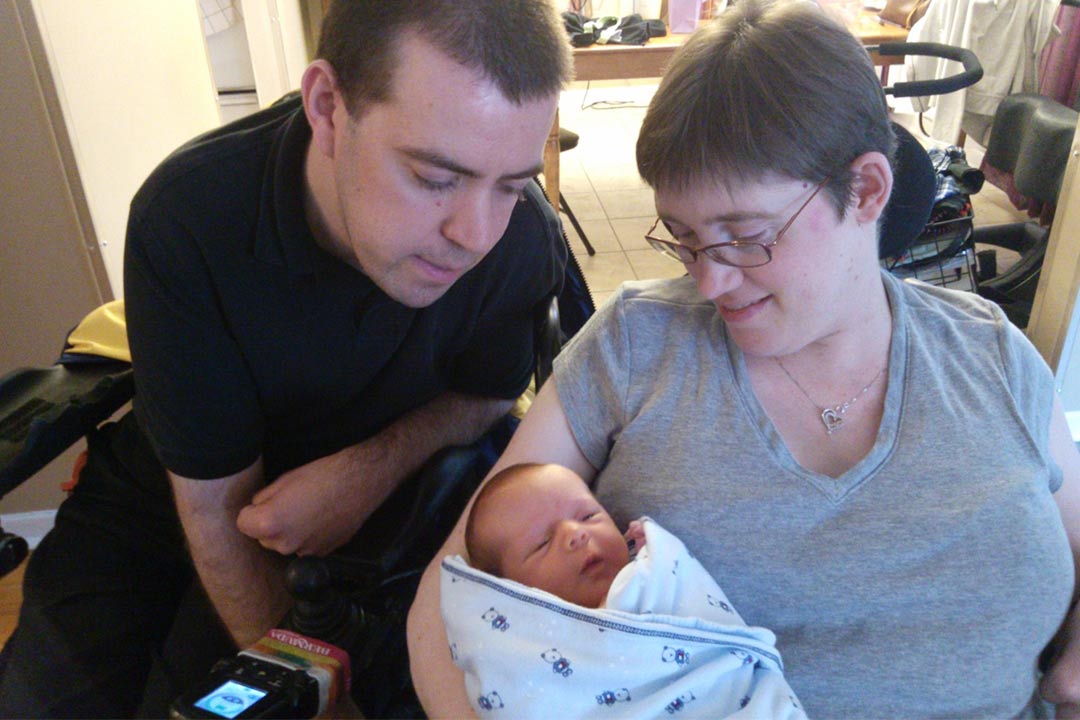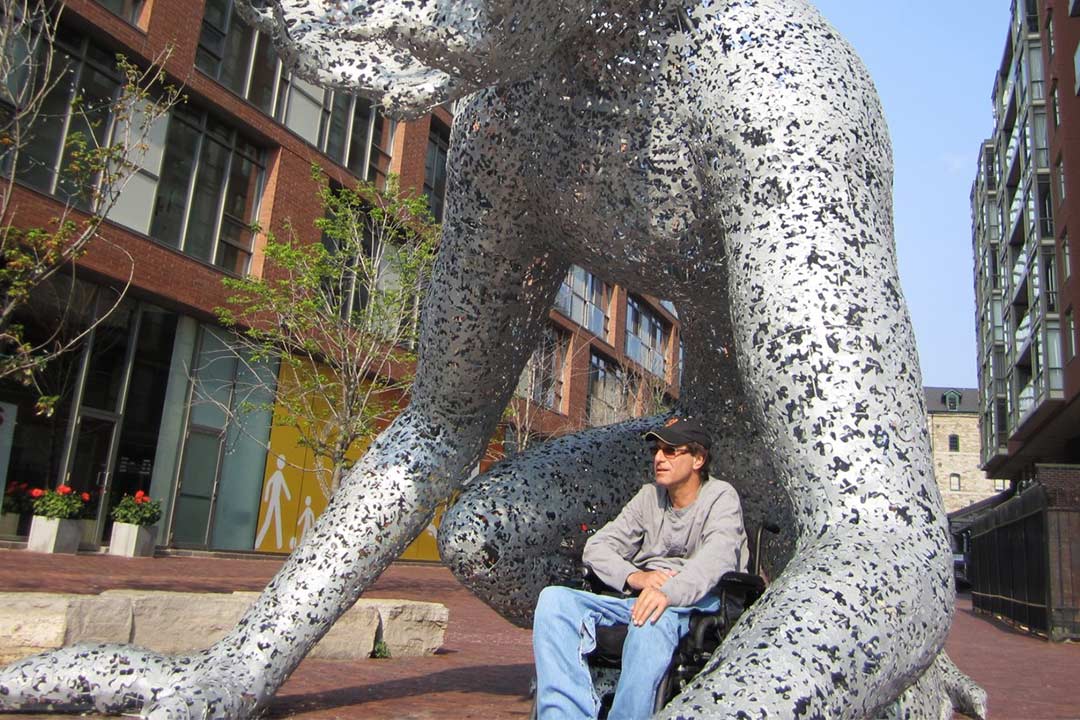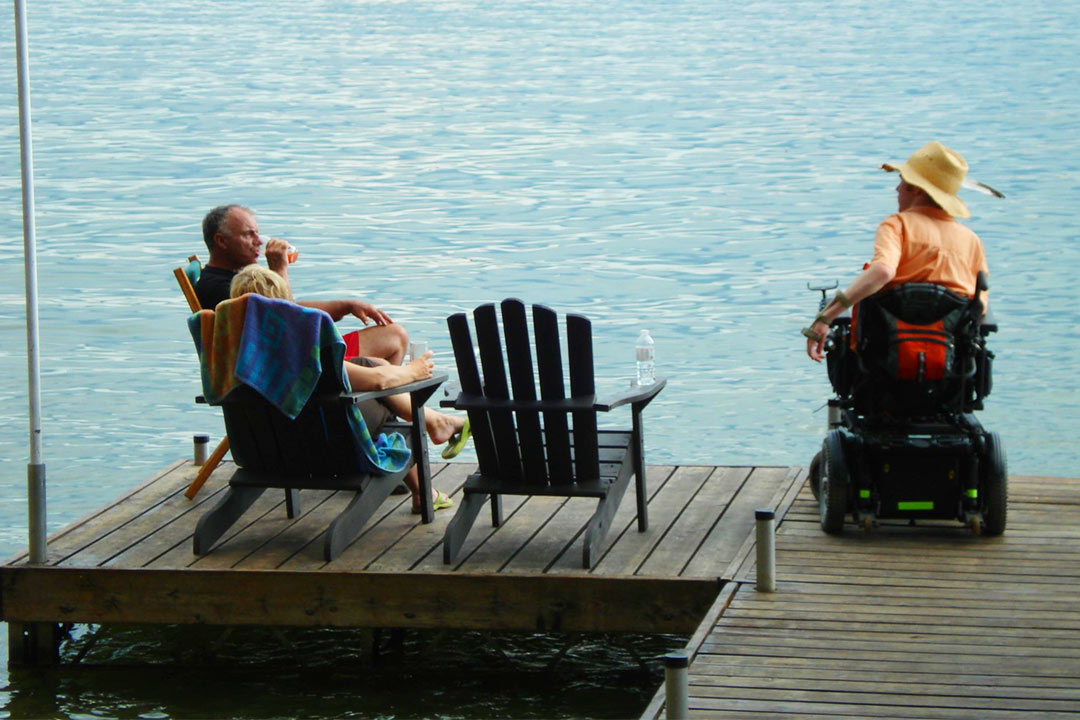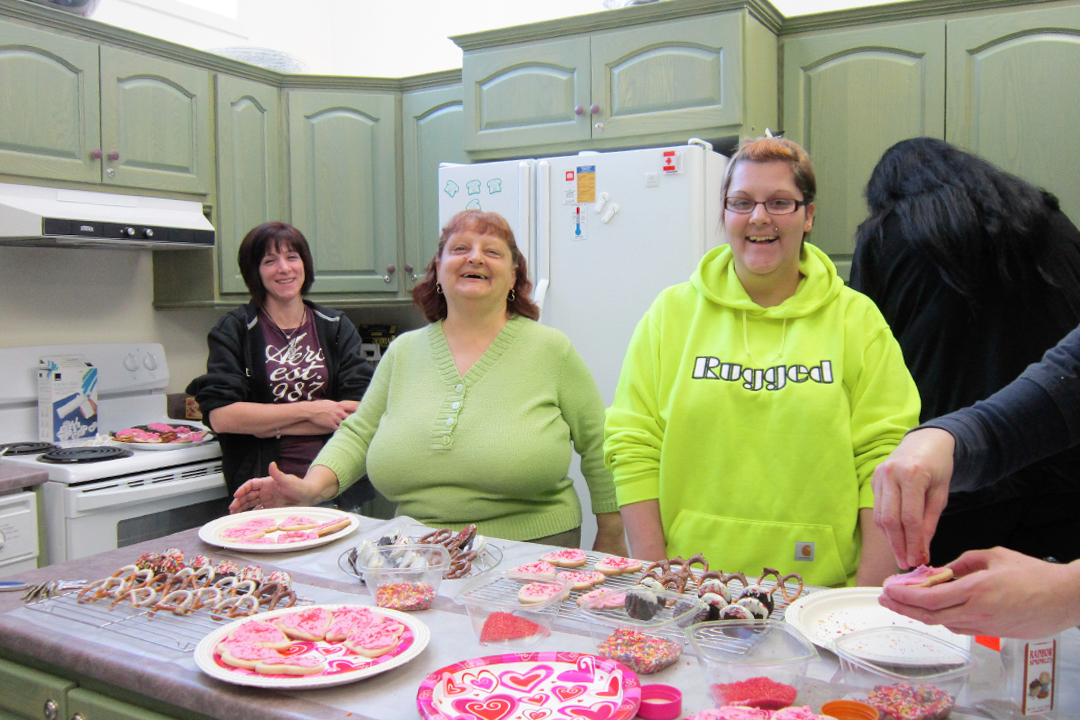As any new parent will tell you, having a baby is both an exciting and terrifying experience. There’s so much to grapple with, from round-the-clock feedings and sleepless nights to diaper changes.
Most parents need an extra hand or two when their children are small, but people who live with mobility disabilities sometimes need extra support to help with the physical tasks of childcare. And being a loving and successful parent doesn’t mean you have to take care of your baby’s physical needs by yourself.
Under the Direct Funding program, participants can receive Nurturing Assistance, which would be in addition to hours for their own personal needs, to help them look after their new family member.
Nurturing Assistance is a short-term increase in funding, which enables a parent with a disability to direct a personal support worker, or attendant, in the physical care of their child. Since Nurturing Assistance is part of Direct Funding, the same eligibility and responsibilities apply Link opens in new tab.
Parents with disabilities use Nurturing Assistance in different ways. For example, you may need help with feeding, bathing and changing your newborn and infant. As the baby grows into the active toddler years, you may then want your Nurturing Assistant to help with other activities, such as helping you to take your child on neighbourhood outings, or to the grocery store.
As your child grows older, you’ll find the need for a Nurturing Assistant goes down. Since this particular program is time limited, the additional funding would be reduced over time and end when your child is old enough to manage their own personal care (usually by age 10).
While Nurturing Assistance has helped many families, it is not a replacement for traditional child care. A Nurturing Assistant works under your direction, as you parent your child. Unlike a daycare provider, babysitter or nanny, where you leave your child with them, it’s your responsibility to be with your assistant, to explain what you’d like them to do, how and when they should do it.
If you’re worried your child will begin to see your assistant as the “real” parent – don’t. Dozens of parents have accessed Nurturing Assistance and find the additional support strengthens their relationship with their children. Their kids know who mom and dad is, and who’s there to lend a hand.
Children change and grow over time, which is a wonderful experience for parents. Nurturing Assistance is there to help with those early days of heavy lifting. It’s an opportunity to help you, as a parent with a disability, to focus on the other responsibilities of parenting.
As one parent told us, “Nurturing Assistance allows me to focus on doing what I do best: provide my child with the emotional care she needs, without worrying about who will be there to look after her physically.”




